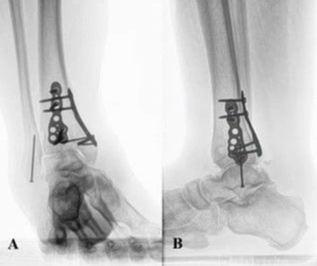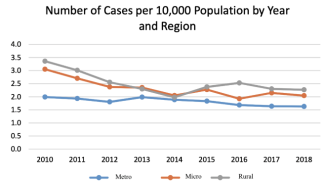Author Insights: The Match
Dr Shahriari discusses the importance of name recognition, mentorship, and connections in The Match as well as a surprising new trend among successful matches.
Video Transcript
Shawhin Shahriari: Hi there. I'm Shawhin Shahriari. I'm a senior resident at the University of New Mexico in the division of plastic surgery. And thank you for having me here today.
Prompt 1: How might the transition of the USMLE Step 1 to pass/fail affect The Match?
I think this is an interesting question, transitioning from pass/fail for step one. The real, I think question stems from the assumption that I made as a medical student, which was that getting a high score on the USMLE step one was the key to matching into plastic surgery or any competitive surgical subspecialties. As I've gone through training and I've been involved in multiple rounds of interview processes and selections, I realize that the reality is these are really just filters at the end of the day.
USMLE step one is a filter because at the end of the day, you have hundreds of applications. And to make it manageable, to then select the best or what you think are potentially the best applicants is to actually set a score that filters out everyone else's application. Now, the question is, yes, step one is going away, but step two is still being scored.
Prompt 2: Do you think the impact will be different for orphan applicants?
Shawhin Shahriari: At the end of the day, I don't really think this is going to change a whole lot because all those other factors, and also having step two as a filter, instead of step one, it really doesn't change anything. What I think to keep in mind, especially for those who are applying into plastic surgery, is that these are just really ways for us to filter down applicants and also know that you're going to be able to pass your board exam.
And to me, that's important, but that's not all that we need in plastic surgery training. There's of course, the actual part where you're doing surgery. Yes, you can pass an exam, but it is still important to realize that there are factors outside of it, that from the applicant's standpoint matter. And from the program standpoint as, like I said, being involved in multiple rounds of interview processes, you realize that people are looking for different things.
And one of the key things that people look at outside of your step one score, since you've passed the cutoff are things like your research publications, the letters of recommendation that you have, and the people that essentially you have advocating for you in your corner.
In terms of the impact on orphan applicants, and I think it's important to know what we mean by orphan applicants. An orphan applicant, it's a term to describe applicants that don't have a plastic surgery program at their medical school. That encompasses a whole lot of people. USMLE being pass/fail, the step one, I don't think it changes much for orphan applicants. Because at the end of the day, they still have to face the same challenges. They still have to face the fact that they don't necessarily have the same access to people who are as well known, because name recognition is important.
As you can see, and we show in our data that not just name recognition of the people who are writing letters, but also the school that you go to. Being in a top quartile institution is important with an affiliated plastic surgery program. At the end of the day, USMLE step one may not change much for orphan applicants, but all those other factors become all the more important. In that way, the absence of USMLE does in some way change the process for orphan applicants.
Prompt 3: Was there anything about the results of your study that surprised you?
Shawhin Shahriari: I think this is a great question. In terms of what surprised me, I was pleasantly surprised to see in our data that in 2021, that was the first year, at least according to our study, that we could find where there was actually more women who matched into plastic surgery than men. Interestingly, we actually looked back at the data again now that it's 2022, and we looked at the 2022 numbers. And this is the second year in a row with the match that there's been more women that match into plastic surgery than men.
And to me, that's certainly a positive trend because we're in a surgical subspecialty, that's historically male dominated, as most surgical subspecialties are. And there's certainly been a lot of effort to recruit and hopefully retain more women. To me, it's definitely a positive trend that we were able identify with our data.
Prompt 4: What is a key takeaway from this study?
Shawhin Shahriari: In terms of the key takeaways from the study, as we expect and as we all know, residency selection, it's the whole process is a challenge for sure, for applicants and for programs. And I think it's important for us to look at how we're doing. And the key takeaways for us are that students who are coming from institutions without an integrated plastic surgery program are certainly at a disadvantage. That includes international medical graduates and DO applicants, with very few IMGs and DOs actually matching each year into plastic surgery programs.
I think at the end of the day, the other key factors is to realize that in top quartile programs, the orphan applicants are actually underrepresented with at 17% of top quartile programs compared to more than 20% have at programs in general. To me, that reflects a lot of the assumptions that we make, thinking about name recognition being important. Coming from a program where you have other plastic surgeons that can advocate for you, who have connections and friends.
At the end of the day, it comes down to the same factors that you need to be able to have those connections and people to advocate for you to guide you through this process, because otherwise, you're going to be flying blind. It's a lot harder to forge your own path to get to this place than if you have someone that's able to guide you and help you forward.
The other key conclusion I would say is that there's definitely a positive trend in having more women matching into plastic surgery than we have previously. And I think that's going to be a positive look in the future. And I hope to see that not only recruitment continues to be the way that it is, but also retention. Because retention historically has been a problem. Recruitment and retention are key things, especially in this case for women and in plastic surgery. And also, I would say for those who are underrepresented in general.
Prompt 5: Final thoughts?
Shawhin Shahriari: I guess for me the question would be, why am I interested in this? The simple answer is I was an orphan. I came from an institution where I did not have residency program, both integrated or independent. We had neither of those where I went to medical school. I certainly faced my own challenges coming and matching into plastic surgery and getting to where I am today.
The reality is that there's not that same mentorship that you would have if you had a program. Because even for me now, I mentor a lot of medical students in my program. I'm able to guide them through those challenges that I personally had. And also, making those connections. It's so important making connections with people outside of our programs and realizing what opportunities there are out there. Without someone who's had that path before me, it certainly was a challenge.
And then now, I looked back and I said, "Well, am I the only person that faced those challenges?" And the data shows that no, I was not. And the board of medical students coming from programs without a integrated plastic surgery or independent plastic surgery program, I think is really important because then you're able to realize that you're going to have to be more proactive. You're going to have to work harder.
And like the data shows, it's going to be harder to get into a top quartile institution without that little bit of help that you would need from good mentor, or someone who's well connected, or people in general. I would say that looking at this, it probably would've changed how I would've approached applying and matching to plastic surgery. And I certainly count myself as lucky to be here. And hopefully, we're able to bridge some of that gap and make up for a little bit of those challenges that you have to face as an orphan applicant.















